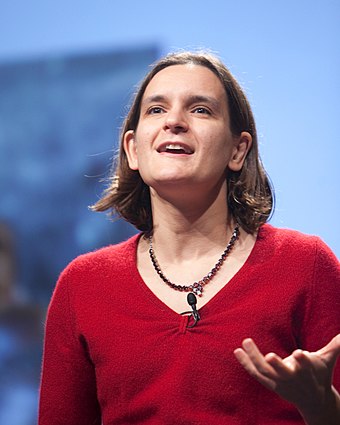
Medal: Erik Lindberg (1873-1966). Front side (obverse) of one of the Nobel Prize medals in Physiology or Medicine awarded in 1950 to researchers at the Mayo Clinic in Rochester, Minnesota. Derivative of File:NobelPrize.JPG.
Dear Friend!
We warmly congratulate the Tunisian National Dialogue Quartet for receiving the Nobel Peace Prize in 2015 for their crucially important work!
At the same time, we are still very thankful that also our global dignity work was nominated for the 2015 and 2016 Nobel Peace Prize. We were nominated by a group of people who, out of appreciation for the prize, wishes to refresh awareness of its roots. We are celebrating all of the 25 remarkable individuals and groups (2015, 2016) who were nominated as candidates whose work is regarded to be in particular resonance with the original will of Alfred Nobel and his inspirer Bertha von Suttner (see her 1889 book, Die Waffen nieder! or Lay Down Your Arms!). Nobel's intention was "that his prize should benefit the 'champions of peace,' he meant the movement and the persons who work for a demilitarized world, for law to replace power in international politics, and for all nations to commit to cooperating on the elimination of all weapons instead of competing for military superiority."
We are delighted that included in the list of 25, as representative of our Human Dignity and Humiliation Studies network, was Evelin Lindner, our Founding President. Her nomination is an affirmation of our global dignity work and her forty years of service and action to bring peace and dignity into the lives of all people, characterized by compassion, equal dignity, diversity, humility, and mutually beneficial collaboration. You can see more here or as Pdf.
Please know that Evelin's nomination for the 2015 Nobel Peace Prize is your nomination! As you know, our dignity work is based on the African Ubuntu philosophy of "I am because of you!" and YOUR dignity work is crucial for bringing more dignity into this world! This nomination has been an encouragement for us all.
Altogether, the Nobel Committee received a total of 276 nominations for the 2015 Peace Prize, thereof 227 nominations of individuals and 49 nominations of organizations (this was slightly down from 2014, when a record high of 278 nominations were submitted). See also the preliminary list compiled in 2015 as each year by the Peace Research Institute Oslo (PRIO) of publicly known nominations prior to the announcement of the actual recipient.
We warmly congratulate the Tunisian National Dialogue Quartet with the recognition for its decisive contribution to the building of a pluralistic democracy in Tunisia in the wake of the Jasmine Revolution of 2011. The prize was announced by Kaci Kullmann Five, Chairman of the Norwegian Nobel Committee, at the Norwegian Nobel Institute, Henrik Ibsens gate 51, Oslo, Norway. Please see the announcement of the Nobel Peace Prize 2015 on 9th October 2015.
Evelin profoundly thanks all those who included her in the nomination for the 2015 prize, which she views as a nomination for our shared efforts as a dignity community. It is the courage and strength that grows through working in a deeply connected and supportive community that replenishes her energy to keep going, as we hope it replenishes the energy of all involved. As Evelin sees it, this nomination is a celebration of our decade of collaboration in which each of us does our part according to our abilities — in the spirit of Ubuntu. It is also an encouragement of our future efforts as a community. Each of us has an important role to play in this urgent effort to bring dignity and peace into the lives of all people.
You are Warmly Invited to Share Your Reflections and Encourage Everyone’s Commitment to Dignity and Peace!
For us, humility and modesty are at the core of dignity, and therefore also at the core of our work. Bertha von Suttner’s message is manifested in our approach more radically than may be apparent at first glance, for instance, in our emphasis on future-oriented nurturing by way of what we call dignicommunication. To be true to our stance of humility, we have considered keeping our nomination confidential. Yet, it would have been irresponsible to deprive the members of our global dignity family around the world. Since February 2015, the nomination has had invaluable results for our global community. In a world where speaking up for dignity is often difficult or even dangerous, this nomination has brought greater safety and support to members who dare to speak up, even when at risk. And since our work is profoundly in line with Alfred Nobel’s intentions, we feel that protecting the members of our global dignity family through this nomination is justified.
Each of us plays a vital role in bringing greater dignity and peace into the world. In recognition and appreciation of our global collaboration, we would love to hear your reflections, that is, what inspires your efforts and ongoing commitment to cultivating dignity and peace in the world? Thank you for allowing us to share your reflections with the many members of our global dignity family. You are warmly invited to post your message in the comment field at the bottom of this page (your comment will be visible when it is released by the administrators).
Your words will encourage our HumanDHS community and encourage all who work for a world of peace, a world that dignifies the lives of all people.
With loving gratitude,
Linda Hartling, PhD, Director of Human Dignity and Humiliation Studies
- Written by: Evelin Lindner
Dear Friend!
This is the story of two operas that display the glory of honor and the destructiveness of honor – destructiveness to others, but also to oneself. La Donna del Lago starts with hailing the glory hunters can attain by killing wild beasts, and it continues with an unrelenting invocation of the glory that warriors can reap from crushing the enemy. In the operetta Die Fledermaus, we meet Prince Orlofsky, an aristocrat who is bored, not least since his raison-d’être, namely, to be a warrior who defends his royal master, is unfulfilled. He has accumulated riches and would need war to regain his true knightly identity. Being in limbo, he cynically takes to humiliating his fellow human beings by advertising ridiculous leisure activities as desirable tokens of higher class, and he uses humiliation among underlings as his entertainment. Soon after this opera was created, World War I started, with a sigh of relief among men of honor: finally, glorious action had found a new arena! The subsequent escalation toward the threat of global nuclear annihilation made unmistakably visible the suicidal character of this kind of male honor: it leads to the dance on the Titanic. You are invited to read more here.
Evelin, December 2015
- Written by: Evelin Lindner
Dear Friend!
This is a story of an opera and how it applies to the need to build a world worth living in, for our children and all beings, and the obstacles on the path to get there. Modern-day topics such as terrorism and gender relations are part of this quest. This text starts with a brief description of the opera, and then addresses its relevance for the transition toward a world that manifests the ideals of the French Revolution of liberté, égalité, and fraternité, a motto that is also at the core of modern-day human rights ideals: “All human beings are born free and equal in dignity and rights. They are endowed with reason and conscience and should act towards one another in a spirit of brotherhood (and sisterhood).” You are invited to read more here.
Evelin, November 26, 2015
- Written by: Evelin Lindner
Dear Friend!
This is a story of an opera and how it applies to deep questions about the nature of reality, of what is and ought to be. These questions pertain also to modern-day topics such as terrorism, gender relations, or music theory. This little text starts with a brief description of the opera, and then addresses its relevance to concepts of masculinity, love, and music. You are invited to read more here.
Evelin, November 22, 2015
- Written by: Evelin Lindner
- The Journey of Humiliation and Dignity, and the Significance of the Year 1757
- Reflections on Tannhäuser, Terrorism, Revolution, and Economism
- Mass Shootings: A Missing Link, A Common Denominator
- Reflections on the 25th Dignity Conference in Rwanda in June 2015
- Good News: 2015 Nobel Peace Prize Nomination!
- Good News from the Human Dignity and Humiliation Studies Movement, December 2014




